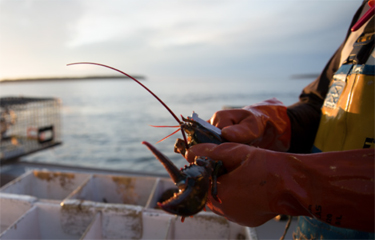U.S. District Judge James Boasberg filed a 20-page order Thursday, April 9, declaring the American lobster fishery violates the Endangered Species Act.
The federal lawsuit was filed to challenge a biological opinion filed by NMFS in 2014 stating that the American lobster fishery “may adversely affect, but is not likely to jeopardize, the continued existence of North Atlantic right whales.”
The judge ruled against NMFS, noting that the agency failed to include an “incidental take statement.” That failure, the judge declared, renders the biological opinion illegal under the Endangered Species Act.
At an open forum with NOAA leadership at the Maine Fishermen’s Forum in March, stakeholders pressed the agency on its drive to enforce gear changes (through the Atlantic Large Whale Take Reduction Team) that could endanger the lives of fishermen with little evidence that the changes would save any whales.
“If the right whale population is so dire how can the agency justify targeting only the lobster fishery?” Patrice McCarron, executive director of the Maine Lobstermen’s Association, asked the panel.
“It’s not within our control to force Canada to take action,” replied Chris Oliver, NMFS administrator.
The Maine Lobstermen’s Association and Massachusetts Lobstermen’s Association were not immediately available for comment. The Massachusetts association intervened in the case in 2018.
Photo courtesy of the Maine Lobster Marketing Collaborative







